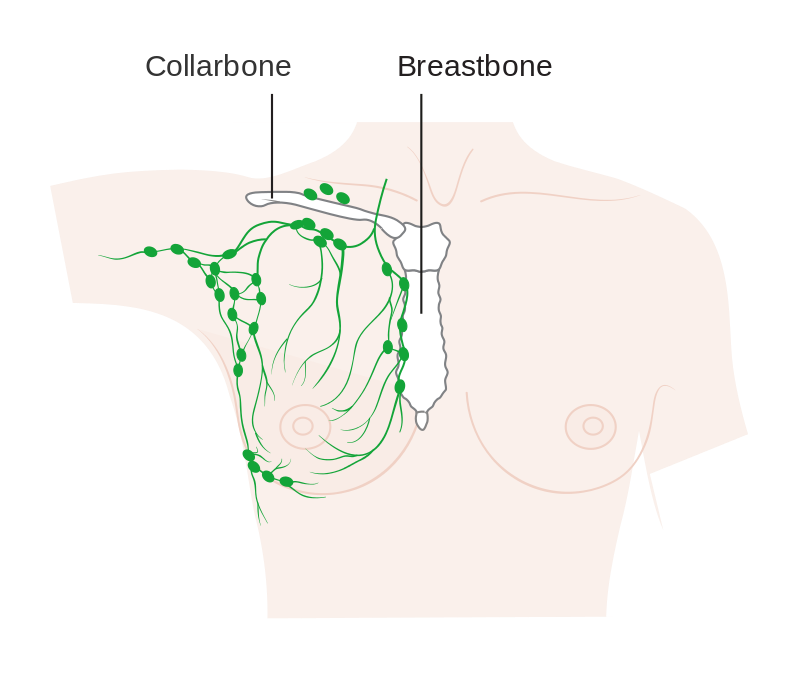If breast cancer spreads, the first place it spreads to is the lymph nodes in your armpit. These lymph nodes will be checked for any signs of cancer, either before or during your breast cancer surgery.
What are lymph nodes?
The lymphatic system protects us from infection and disease and removes extra fluid and waste from the body's tissues. It is made up of lymph nodes connected by tiny tubes called lymph vessels.
Lymph nodes are found mainly in the neck, armpit, groin and tummy.
It's important to know if the cancer has spread to your lymph nodes, as this will affect the treatment you will need.



